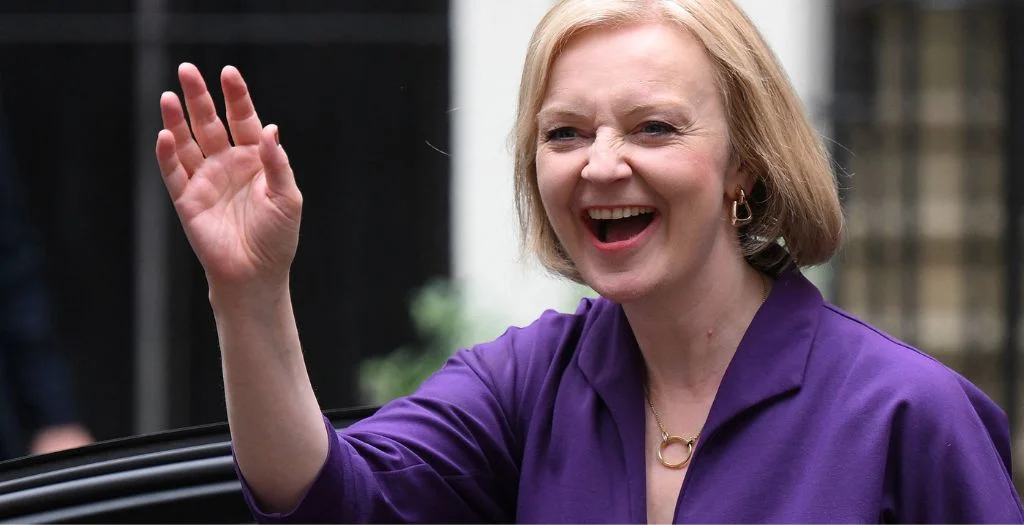Liz Truss is well-known in the UK and abroad, yet few know anything about her. In 2022, she became the third female and shortest-serving UK Prime Minister. She also served as Foreign Secretary, Trade Secretary, Justice Secretary, and Minister for Women and Equalities. She rose to power amid controversy and criticism, and her fall was rapid and spectacular. Now where is Liz Truss? How has she been since leaving Downing Street? What are her future prospects? This page addresses these and other questions.
Liz Truss’s rise to power
Liz Truss was born in Oxford on July 26, 1975. At Merton College, Oxford, she studied politics, philosophy, and economics and joined the Hayek Society after becoming interested in classical liberalism. She was president of the Oxford University Liberal Democrats and supported monarchy abolition at a 1994 party convention. Because of Margaret Thatcher and John Major, she joined the Conservative Party by 1996.
Her career included management consulting for Shell and Cable & Wireless before she became deputy director of Reform, a free-market think group. She co-authored After the Coalition (2011) and Britannia Unchained (2012), which advocated for radical education, welfare, taxes, and regulatory changes.
When she became South West Norfolk MP in 2010, she joined politics. David Cameron, Theresa May, and Boris Johnson quickly appointed her a Conservative minister.
Secretary of State
In 2014, she became Secretary of State for Environment, Food, and Rural affairs Justice and Lord Chancellor in 2016, Chief Secretary to the Treasury in 2017, Secretary of State for International Trade and Board of Trade President in 2019, and Minister for Women and Equalities in 2021.
She was popular with certain party members and the public for her outspoken opinions on free trade, Brexit, feminism, cheese, hog markets, and other themes. Conservative MPs disgruntled with Boris Johnson’s handling of the COVID-19 outbreak, the economy, and other concerns considered her a possible replacement.
Her chance came in September 2022, when Johnson resigned as Prime Minister following a no-confidence vote in Parliament. Truss ran for Conservative Party leader and Prime Minister. Chancellor Rishi Sunak, Home Secretary Priti Patel, Cabinet Office Minister Michael Gove, and former Foreign Secretary Jeremy Hunt were her opponents.
She campaigned on delivering Brexit by October 31st (Johnson’s deadline), cutting taxes and spending, boosting trade deals with other countries (especially Australia), reforming public services (especially education), strengthening national security (especially against Russia), and promoting social mobility.
Many Conservative MPs saw her as a new face who might appeal to younger people and Brexiteers. Her commitment and personality were able to win over some MPs from various parties. She advanced to the final round against Sunak, the establishment candidate and favorite. She barely beat Sunak by 51.3% to 48.7% in the Conservative Party’s final vote, becoming Prime Minister of the UK on September 6, 2022.
The fall from grace experienced by Liz Truss
Liz Truss was short-lived and controversial. She started with local and international concerns. Johnson’s resignation divided, and upset the country, she faced. She had to negotiate Brexit with the EU, which had been delayed many times and faced public and MP opposition. She handled the COVID-19 pandemic that killed thousands and harmed the economy.
Trump’s 2020 presidential loss
Johnson’s unpredictable behavior and Trump’s 2020 presidential loss had soured ties with the US, which she had to handle. After Queen Elizabeth II died on September 18, 2022, after a lengthy reign, she had to watch the handover to King Charles III.
She made controversial decisions and mistakes that tarnished her image. She chose an inexperienced and unequal Cabinet that favored her fans and followers over more capable and varied people. On September 22, 2022, she presented a mini-budget that was widely criticized as unrealistic and risky, pledging to slash public spending by £50 billion, cut taxes for the wealthy and corporations, cancel foreign aid, and expand borrowing.
Environmentalists and local communities challenged her plans to legalize fracking in England, and her party rebelled. Thérèse Coffey, her deputy, resigned as Deputy Prime Minister on October 24, 2022, accusing Truss of ineptitude and dishonesty.
She also received widespread criticism for her performance and policies. She departed office with 25% approval, down from 65% when she started office. The media and social media chastised her for mispronouncing phrases, making bogus assertions, and acting stupid. The Daily Star tabloid called her “Lettuce after she live-streamed an iceberg lettuce in their office for longer than her reign.
Sunak filed
She lost a Parliamentary vote of no confidence by 312 to 308 on October 20, 2022. Sunak filed the petition, planning to attack her since he lost the leadership election. He accused her of being unsuited for government, harming the nation’s image, risking national security, and undermining Conservative beliefs. He also claimed enough Conservative MP backing to create a new administration.
Truss refused to quit, saying she had a mandate from the people and that Sunak was a traitor. Later that day, she resigned as Prime Minister after failing to win Cabinet or party support.
She was the shortest-serving British Prime Minister, serving for 50 days. She was the first Prime Minister overthrown by a no-confidence vote since Neville Chamberlain in 1940.
Liz Truss’s life after Downing Street
Liz Truss has maintained a quiet profile since leaving Downing Street. She is still a South West Norfolk MP but has had little impact in Parliament or the opposition. Constituency work takes her to local businesses, hospitals, schools, and charities. She has also supported Norfolk Ukrainian refugees.
As former Prime Minister, she submitted her resignation honors list in August 2023. Coffey (who reconciled with her after resigning), Patel (who remained loyal to her), Gove (who supported her during the fracking crisis), Hunt (who endorsed her during the leadership election), and Dominic Cummings (her chief strategist) received peerages.
She knighted Jacob Rees-Mogg, Iain Duncan Smith, Nigel Farage, and Ed Sheeran, her political allies and friends. She also idolized her female role models and mentors, including Theresa May, Ruth Davidson, and Emma Thompson.
Liz Truss is a spectacular and controversial British politician. She went from Liberal Democrat activist to UK Prime Minister. The third female and shortest-serving president created history. She made several contentious decisions and had many challenges in her brief reign.
A no-confidence vote in Parliament cost her power and popularity. She remains a South West Norfolk MP but is not engaged in opposition. She has concentrated on her district and personal interests and completed certain Prime Ministerial obligations.
Liz Truss has numerous future problems and possibilities. She must balance her actions and policies’ pros and cons. Suffers from media and public shame. Her party and participation must be restored. She must select a new job or another leadership position to rebalance her job, health, and personal life.
People like and hate, esteem and disdain, loyalty and treachery, and Liz Truss is interesting and complicated. She’s accomplished a lot and lost a lot. She has a vision and a shortcoming. She has a story and a mystery.
Source: ZoxPR.

